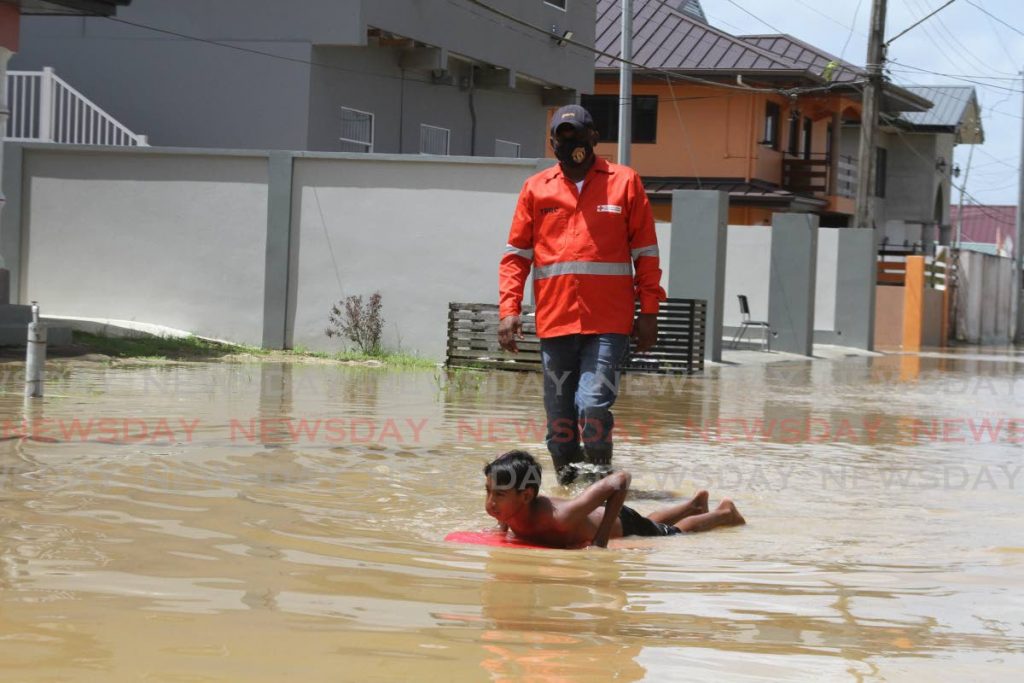Climate change and adolescent health

Dr Asha Pemberton
teenhealth.tt@gmail.com
Arising out of the Conference of the Parties (COP26) to the United Nations Framework Convention on Climate Change (UNFCCC) has been a “calling out” to global leaders to advance their climate commitments and actions. Receding coastlines, record-breaking heat, wildfires and floods have all demonstrated that we finally need to wake up to climate change.
Throughout our twin-island Republic the effects of a changing climate cannot be escaped. Beaches are disappearing, crops are affected and the prevalence of allergic conditions including asthma, allergic sinusitis and conjunctivitis in children is high. These are all points which show that our environment is in distress. According to the most recent assessment of the International Panel on Climate Change, the effects are now “widespread, rapid, and intensifying.”
Many impacts are irreversible. As a country made up of islands, with significant reliance on agriculture and livestock production as well as the tourism sector, we have additional reasons to be concerned. That apart, more and more attention is being paid to the effects of climate change on child and adolescent health.
In recent months, the United Nations Children’s Fund reported that half the world’s 2.2 billion children are at “extremely high risk” from the impacts of climate change. More literature is emerging considering the mental health consequences of climate change for children and adolescents. Childhood is a period of extremely high developmental vulnerability. Even before birth, acute environmental stressors — such as hurricanes, wildfires, floods and heat waves — can cause maternal trauma. That can translate into experiences can harm the developing foetus and increase disease vulnerability for the unborn child throughout life.
Adolescents and Climate Advocacy
Significant physiological, pubertal and social changes characterise adolescence. Many young people feel occasionally overwhelmed by the challenges presented during this time and their awareness of a changing world which they will inherit is becoming more relevant. Climate change is literally increasing the frequency, intensity and duration of weather-related stressors such as hurricanes, heat waves, unpredictable rainfall and floods. All of these impact their daily lives as regards transportation, destruction to homes, increased energy bills and personal discomfort. Excessive heat disrupts sleep patterns, affects cognitive performance and increases irritability all of which will cumulatively impact the transition to young adulthood and socioeconomic prospects. Climate change can compromise long-term mental health resilience.
'There is no planet B'
In addition to the direct effects of our changing weather patterns on the daily lives of young people, due to the ubiquitous nature of social media, young people are acutely aware that the devastation of the planet will be theirs to contend with in adult life. In addition to leading the way in climate change advocacy, recent reports indicate that more and more young people are becoming anxious as regards this issue. Termed “eco-anxiety” or “climate-anxiety” psychological bodies have already recognised patterns of features of anxiety correlated to fears reading changes in our environment that are rapidly occurring. Many young people feel helpless, betrayed and angry with the prior generation for failing to prevent the climate crisis. It is critical that we recognise that multiple ways in which this climate emergency affects our children and adolescents so that we put all efforts into restoration and recovery.
Protecting the future
The best way to protect children from the effects of climate change is to aggressively act, in each of our small spaces to prevent ongoing damage. We must be mindful of our personal footprints, energy consumption and waste generation. We should reconsider purchases of items with large and wasteful packaging. Perhaps consider a more plant-based lifestyle to reduce the impact of the animal rearing industry. Importantly, we make daily concerted efforts to re-use or repurpose household items and more so be more mindful of what we actually need to be.
No time to lose
Healthy psychological development of adolescents is the foundation of any society’s social, economic and future human capital. While much of this damage occurred before this generation was born, we need to act expediently to manage what we can and reduce ongoing effects. Regarding young people themselves, engage youth in activities and initiative regarding environmental health and climate change. Information and awareness are first steps, followed by consistent action and improvement.

Comments
"Climate change and adolescent health"